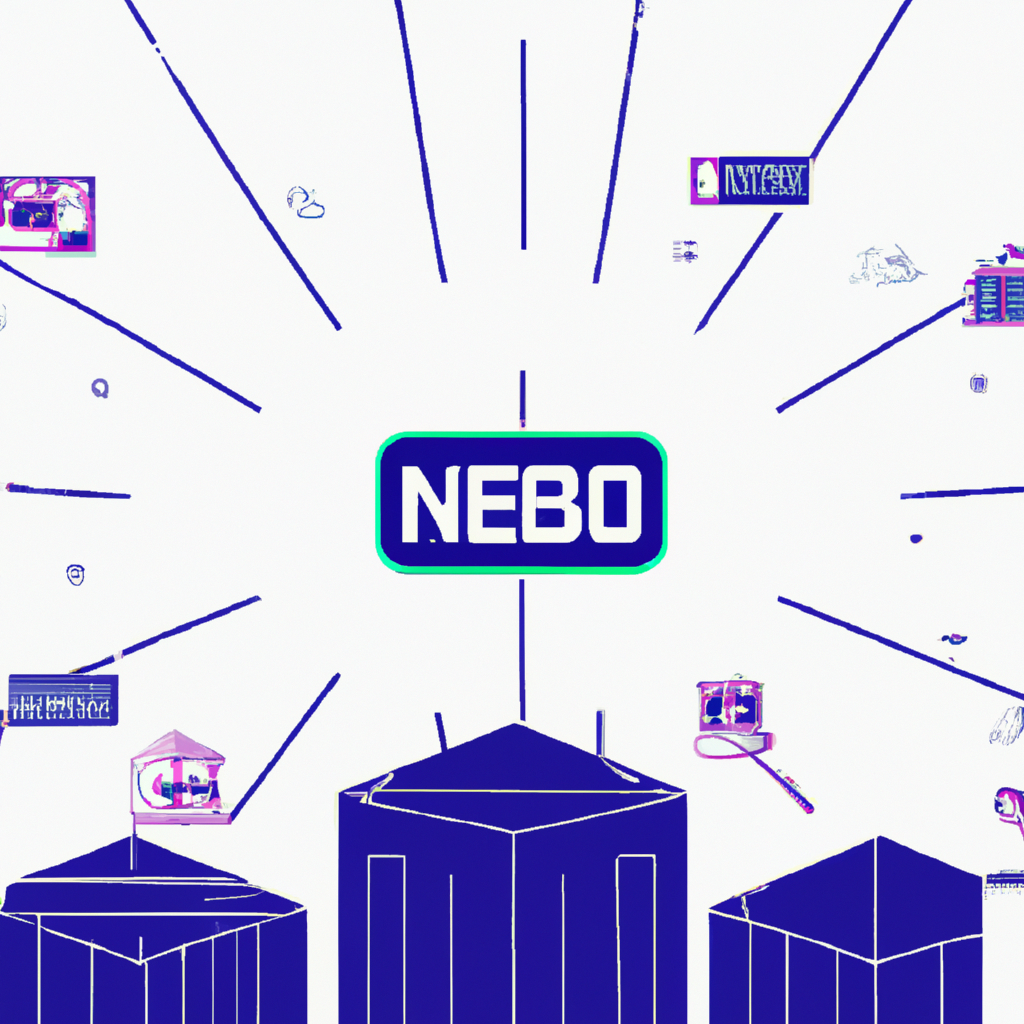
The rise of neo banks and their role in the fintech revolution
-
Table of Contents
“Unlock the Future of Banking with Neo Banks: The Fintech Revolution”
Introduction
The rise of neo banks and their role in the fintech revolution has been a major development in the financial services industry. Neo banks, also known as digital banks, are online-only banks that offer a range of financial services, such as payments, deposits, loans, and investments, without the need for a physical branch. These banks are powered by technology and are designed to provide a more convenient and cost-effective banking experience for customers. Neo banks are playing an increasingly important role in the fintech revolution, as they are providing customers with access to innovative financial services and products that are tailored to their needs. In addition, neo banks are helping to drive competition in the banking sector, as they are providing customers with more choice and better value for their money.
How Neo Banks are Disrupting the Traditional Banking Model
Neo banks, also known as digital banks, are a new type of financial institution that are disrupting the traditional banking model. These banks are completely digital, meaning they do not have physical branches or ATMs. Instead, customers access their accounts and services through a mobile app or website.
Neo banks offer a range of services that are similar to those of traditional banks, such as savings accounts, checking accounts, and debit cards. However, they also offer additional features that are not available from traditional banks. For example, many neo banks offer budgeting tools, automated savings plans, and real-time notifications when transactions occur.
Neo banks are also more accessible than traditional banks. They often have lower fees and minimum balance requirements, and they are available to customers 24/7. This makes them attractive to customers who may not have access to traditional banking services.
Neo banks are also more secure than traditional banks. They use advanced encryption technology to protect customer data, and they are not subject to the same regulations as traditional banks. This makes them a safer option for customers who are concerned about their financial security.
Overall, neo banks are disrupting the traditional banking model by offering customers more convenience, accessibility, and security. They are an attractive option for customers who want to take control of their finances and manage their money more effectively.
Exploring the Benefits of Neo Banks for Consumers
Neo banks, also known as digital banks, are a new type of financial institution that offer a range of services to consumers. These services are typically provided through a mobile app or online platform, and they offer a number of advantages over traditional banks. In this article, we will explore the benefits of neo banks for consumers.
One of the primary advantages of neo banks is their convenience. Unlike traditional banks, neo banks are available 24/7, allowing customers to access their accounts and manage their finances at any time. This makes it easier for customers to keep track of their spending and manage their finances on the go. Additionally, many neo banks offer features such as budgeting tools and automated savings plans, which can help customers stay on top of their finances.
Another benefit of neo banks is their low fees. Many neo banks offer free or low-cost services, such as free transfers and low-cost overdraft protection. This can help customers save money on fees that would otherwise be charged by traditional banks. Additionally, many neo banks offer higher interest rates on savings accounts, which can help customers earn more money on their savings.
Finally, neo banks offer a range of innovative features that are not available with traditional banks. For example, many neo banks offer features such as real-time notifications, which can help customers stay on top of their finances. Additionally, many neo banks offer features such as virtual cards, which can help customers make secure online purchases without having to use their physical debit or credit cards.
In conclusion, neo banks offer a range of benefits to consumers. They are convenient, offer low fees, and provide innovative features that are not available with traditional banks. For these reasons, neo banks are becoming increasingly popular with consumers.
The Impact of Neo Banks on Financial Inclusion
Financial inclusion is a term used to describe the process of providing access to financial services to those who are traditionally excluded from the formal financial system. This includes individuals who are unbanked, underbanked, or have limited access to financial services. In recent years, the emergence of neo banks has had a significant impact on financial inclusion.
Neo banks are digital-only banks that offer a range of financial services, such as savings accounts, loans, and investments, without the need for a physical branch. They are typically accessible through mobile apps and websites, making them more accessible to those who may not have access to traditional banking services.
Neo banks have had a positive impact on financial inclusion by providing access to financial services to those who may not have had access before. They are often more affordable than traditional banks, as they do not have the overhead costs associated with physical branches. Additionally, they are often more convenient, as they can be accessed from anywhere with an internet connection.
Neo banks have also made it easier for those who are unbanked or underbanked to access financial services. By providing access to digital banking services, neo banks have made it easier for those who may not have access to traditional banking services to open accounts and access financial services. This has enabled more people to access financial services, which can help them to save money, build credit, and manage their finances more effectively.
In conclusion, neo banks have had a positive impact on financial inclusion by providing access to financial services to those who may not have had access before. They are often more affordable and convenient than traditional banks, and they have made it easier for those who are unbanked or underbanked to access financial services. As neo banks continue to grow in popularity, they are likely to have an even greater impact on financial inclusion in the future.
The Role of Neo Banks in the Fintech Revolution
The fintech revolution has been a major disruptor in the financial services industry, and neo banks have been at the forefront of this revolution. Neo banks, also known as digital banks, are financial institutions that provide banking services exclusively through digital channels. They are not traditional banks, but rather, they are technology companies that offer banking services.
Neo banks have been instrumental in driving the fintech revolution. They have enabled customers to access banking services more conveniently and quickly than ever before. They have also enabled customers to access banking services from anywhere in the world, at any time. Furthermore, they have enabled customers to access banking services without having to visit a physical branch.
Neo banks have also been instrumental in driving innovation in the financial services industry. They have enabled customers to access a wide range of financial services, such as payments, investments, and loans, through their digital channels. They have also enabled customers to access these services more quickly and conveniently than ever before.
In addition, neo banks have enabled customers to access banking services with greater transparency and security. They have enabled customers to access banking services with greater privacy and security, as they do not require customers to provide personal information to access their services. Furthermore, they have enabled customers to access banking services with greater transparency, as they provide customers with detailed information about their services and fees.
Overall, neo banks have been instrumental in driving the fintech revolution. They have enabled customers to access banking services more conveniently and quickly than ever before, and they have enabled customers to access a wide range of financial services through their digital channels. Furthermore, they have enabled customers to access banking services with greater transparency and security. As such, neo banks have been a major disruptor in the financial services industry, and they will continue to play a major role in the fintech revolution.
Examining the Regulatory Challenges Facing Neo Banks
Neo banks, also known as digital banks, are a relatively new type of financial institution that offer banking services through digital channels such as mobile apps and websites. While these banks offer a number of advantages, such as lower fees and more convenient services, they also face a number of regulatory challenges.
One of the primary regulatory challenges facing neo banks is the need to obtain a banking license. In most countries, banks are required to obtain a banking license in order to operate legally. This process can be lengthy and expensive, and it can be difficult for neo banks to meet the requirements. Additionally, some countries have restrictions on the types of services that neo banks can offer, which can limit their ability to compete with traditional banks.
Another challenge facing neo banks is the need to comply with anti-money laundering (AML) and know-your-customer (KYC) regulations. These regulations are designed to prevent financial crimes such as money laundering and terrorist financing, and they require banks to collect and verify information about their customers. Neo banks must ensure that they have the necessary systems and processes in place to comply with these regulations, which can be costly and time-consuming.
Finally, neo banks must also comply with data protection regulations, such as the General Data Protection Regulation (GDPR) in the European Union. These regulations require banks to protect the personal data of their customers, and they can be difficult to comply with.
In conclusion, neo banks face a number of regulatory challenges, including the need to obtain a banking license, comply with AML and KYC regulations, and protect customer data. While these challenges can be difficult to overcome, they are necessary in order to ensure the safety and security of customers and the financial system.
Q&A
Q1: What is a neo bank?
A1: A neo bank is a digital-only bank that offers banking services through a mobile app or website. Neo banks are typically not affiliated with traditional banks and offer services such as checking accounts, debit cards, and money transfers.
Q2: How do neo banks differ from traditional banks?
A2: Neo banks differ from traditional banks in that they are digital-only and do not have physical branches. They also typically offer more modern features such as budgeting tools, automated savings, and real-time notifications.
Q3: What role do neo banks play in the fintech revolution?
A3: Neo banks are playing an important role in the fintech revolution by providing consumers with more convenient and accessible banking services. They are also helping to drive innovation in the banking industry by introducing new technologies and services.
Q4: What are some of the advantages of using a neo bank?
A4: Some of the advantages of using a neo bank include lower fees, more modern features, and greater convenience. Neo banks also typically offer higher interest rates on savings accounts and more flexible terms for loans.
Q5: Are neo banks safe and secure?
A5: Yes, neo banks are safe and secure. They use the same security measures as traditional banks, such as encryption and two-factor authentication. Additionally, many neo banks are regulated by the same financial authorities as traditional banks.
Conclusion
The rise of neo banks has been a major factor in the fintech revolution. They have enabled customers to access banking services in a more convenient and cost-effective way, while also providing innovative features such as budgeting tools and automated savings. As the fintech revolution continues to evolve, neo banks will continue to play an important role in providing customers with the banking services they need.


